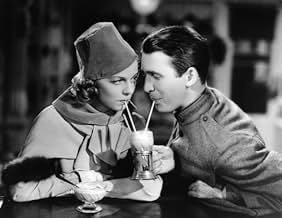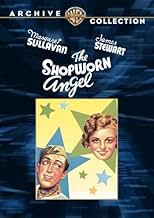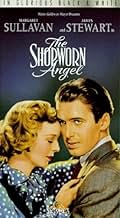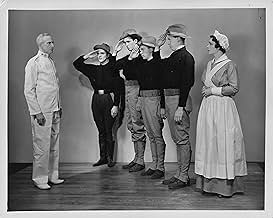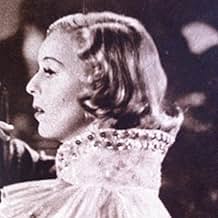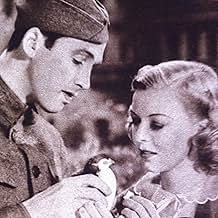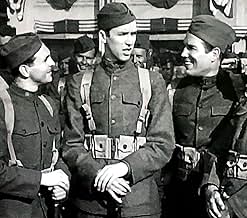NOTE IMDb
6,9/10
1,7 k
MA NOTE
Ajouter une intrigue dans votre langueShortly after the United States enters World War I in 1917, a Broadway actress agrees to let a naive soldier court her in order to impress his friends, but a real romance soon begins.Shortly after the United States enters World War I in 1917, a Broadway actress agrees to let a naive soldier court her in order to impress his friends, but a real romance soon begins.Shortly after the United States enters World War I in 1917, a Broadway actress agrees to let a naive soldier court her in order to impress his friends, but a real romance soon begins.
Charley Grapewin
- Wilson - Caretaker
- (scènes coupées)
Wade Boteler
- Irish Policeman
- (non crédité)
Don Brodie
- Candy Store Attendant
- (non crédité)
Jimmy Butler
- Jack - Elevator Boy
- (non crédité)
Eddy Chandler
- Corporal
- (non crédité)
George Chandler
- Tommy - Soldier
- (non crédité)
Roger Converse
- Hotel Clerk
- (non crédité)
James Flavin
- Guard Yelling 'Halt!'
- (non crédité)
Histoire
Le saviez-vous
- AnecdotesBroadway musical-comedy star Mary Martin provides the singing voice for Margaret Sullavan. This same year she also dubbed the singing voice for Gypsy Rose Lee in Les deux bagarreurs (1938). Modern sources indicate that Universal's La coqueluche de Paris (1938), which was filmed at approximately the same time as The Shopworn Angel was Martin's first film "bit" role. According to records of the M-G-M Music Collection at the USC Cinema-Television Library, Martin's recording of "Pack Up Your Troubles in Your Old Kit Bag and Smile, Smile, Smile was made on 1 June 1938.
- GaffesBill mails his postcards after leaving the soda fountain, seemingly without putting any stamps on them, but on one shot while he's sitting at the lunch counter you can see stamps on the cards. However, in the next close-up, just before he leaves, the cards are unstamped. The likely reason is that all the closeup shots where he's writing on the blank cards were filmed together with the same camera setup, and the long shots were shot later after stamps were added. (Perhaps they filmed a scene of Bill buying and affixing stamps but decided not to use it.)
- Citations
Pvt. William 'Texas' Pettigrew: Dying's a lot like being in love. You can't imagine it until its right on top of you.
- ConnexionsFeatured in AFI Life Achievement Award: A Tribute to James Stewart (1980)
- Bandes originalesYou're In The Army Now
(1917) (uncredited)
Music by Isham Jones
Lyrics by Tell Taylor and Ole Olsen
Played as background music for marching soldiers
Commentaire à la une
There's no doubt that THE SHOPWORN ANGEL uses a plot that has been used countless times in movies and books over the years. It's the story of a selfish actress (MARGARET SULLAVAN) suddenly succumbing to the country boy charm of a soldier (JAMES STEWART) who is about to be sent overseas in WWII. Meanwhile, she has her agent WALTER PIDGEON, whom she depends upon for emotional support and love. Surely, there is nothing new about the bare outline of the plot.
But what works in the story's favor is the simplicity and charm of the three leads. Sullavan is more radiant than usual as a glamorous actress rather than the drab little wren she usually played and she plays her part in a refreshing manner that is almost able to overcome the idea that she should suddenly turn so noble. Despite this flaw in the characterization, it's a very winning performance that she gives.
Likewise, JAMES STEWART does wonders with a thinly devised role of the country bumpkin who falls impetuously in love with an actress, even to the point of asking her to marry him before he goes overseas. At this point, the plot's outcome becomes telegraphed because we know this is a Margaret Sullavan film and tearful romantic dramas have been her specialty. Thus, the ending becomes a forgone conclusion.
WALTER PIDGEON is her kindly suitor who has the wisdom to make the best of a situation he's not exactly comfortable with. He anchors the story with his sensitive performance as the man who can always be depended on to give the heroine the emotional support she needs. He's also got an abundant sense of humor that the story needs.
It's a trifle of a film, but beautifully acted and given a lift by the winsome performances of its three leads, moving at a brisk pace to the Hollywood ending. HATTIE McDANIEL is her usual delightful self as Miss Sullvan's down-to-earth maid.
But what works in the story's favor is the simplicity and charm of the three leads. Sullavan is more radiant than usual as a glamorous actress rather than the drab little wren she usually played and she plays her part in a refreshing manner that is almost able to overcome the idea that she should suddenly turn so noble. Despite this flaw in the characterization, it's a very winning performance that she gives.
Likewise, JAMES STEWART does wonders with a thinly devised role of the country bumpkin who falls impetuously in love with an actress, even to the point of asking her to marry him before he goes overseas. At this point, the plot's outcome becomes telegraphed because we know this is a Margaret Sullavan film and tearful romantic dramas have been her specialty. Thus, the ending becomes a forgone conclusion.
WALTER PIDGEON is her kindly suitor who has the wisdom to make the best of a situation he's not exactly comfortable with. He anchors the story with his sensitive performance as the man who can always be depended on to give the heroine the emotional support she needs. He's also got an abundant sense of humor that the story needs.
It's a trifle of a film, but beautifully acted and given a lift by the winsome performances of its three leads, moving at a brisk pace to the Hollywood ending. HATTIE McDANIEL is her usual delightful self as Miss Sullvan's down-to-earth maid.
Meilleurs choix
Connectez-vous pour évaluer et suivre la liste de favoris afin de recevoir des recommandations personnalisées
- How long is The Shopworn Angel?Alimenté par Alexa
Détails
Box-office
- Budget
- 531 000 $US (estimé)
- Durée1 heure 25 minutes
- Couleur
- Rapport de forme
- 1.37 : 1
Contribuer à cette page
Suggérer une modification ou ajouter du contenu manquant

Lacune principale
By what name was L'ange impur (1938) officially released in Canada in English?
Répondre

